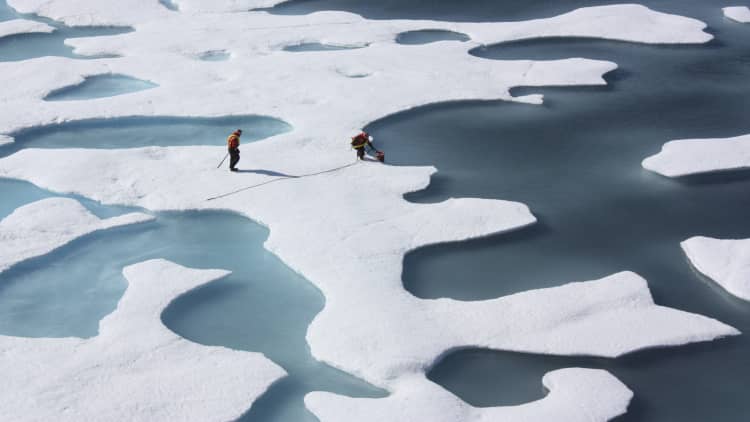
In an annual assessment of the region, scientists said Tuesday that global climate change is putting the region at risk.
Warming air temperatures, melting sea ice, shorter periods of snow cover, increased wildfire, and rising levels of precipitation have caused wildlife and Indigenous people in the region to adapt.
The report said that the year was the sixth warmest on record. The last seven years have been the warmest on record, and researchers pointed to a number of signs that the region is changing.
The retreat of glaciers has been accelerated by climate change.
The most notable increases in traffic occurring among ships travelling from the Pacific Ocean through the Bering Strait and the Beaufort Sea are due to the decline in sea ice.
The rise in ship traffic opens economic opportunities for new trade routes but also poses a risk to the environment. In the summer, the sea lanes could be ice-free.
The report card was developed by nearly 150 scientists. The assessment shows the urgent need to confront the climate crisis by reducing greenhouse gasses and taking steps to be more resilient.
The scientists said that the seasons are shifting and that the precipitation in the north is rising. The lives of people and animals have been disrupted by the changes.
A phenomenon that is raising sea levels across the world was discovered this year and it is happening in the northern part of the planet. A one-foot rise in global sea levels would have major consequences for coastal communities as sea level rise threatens to displace almost 200 million people by the end of the century
